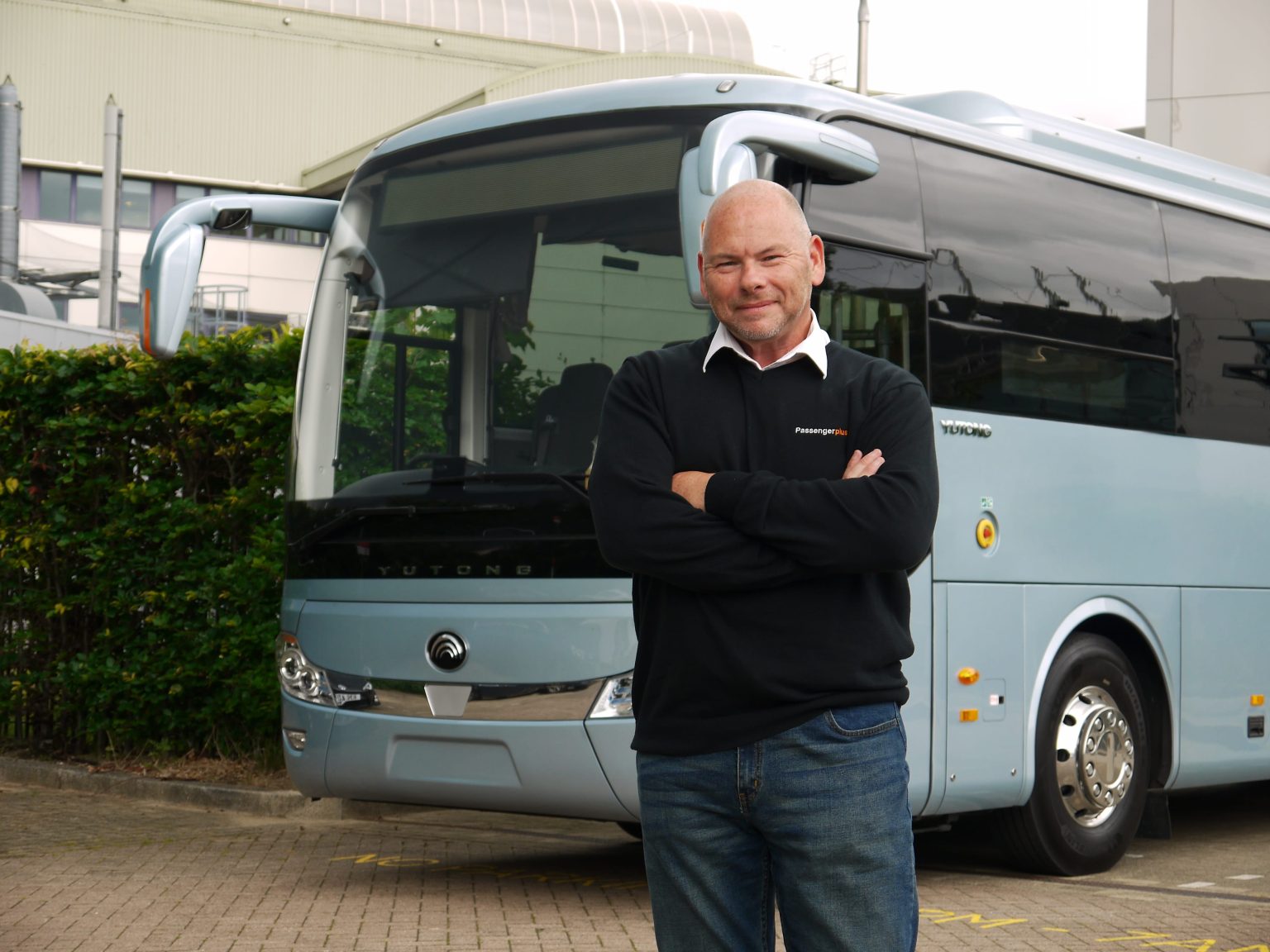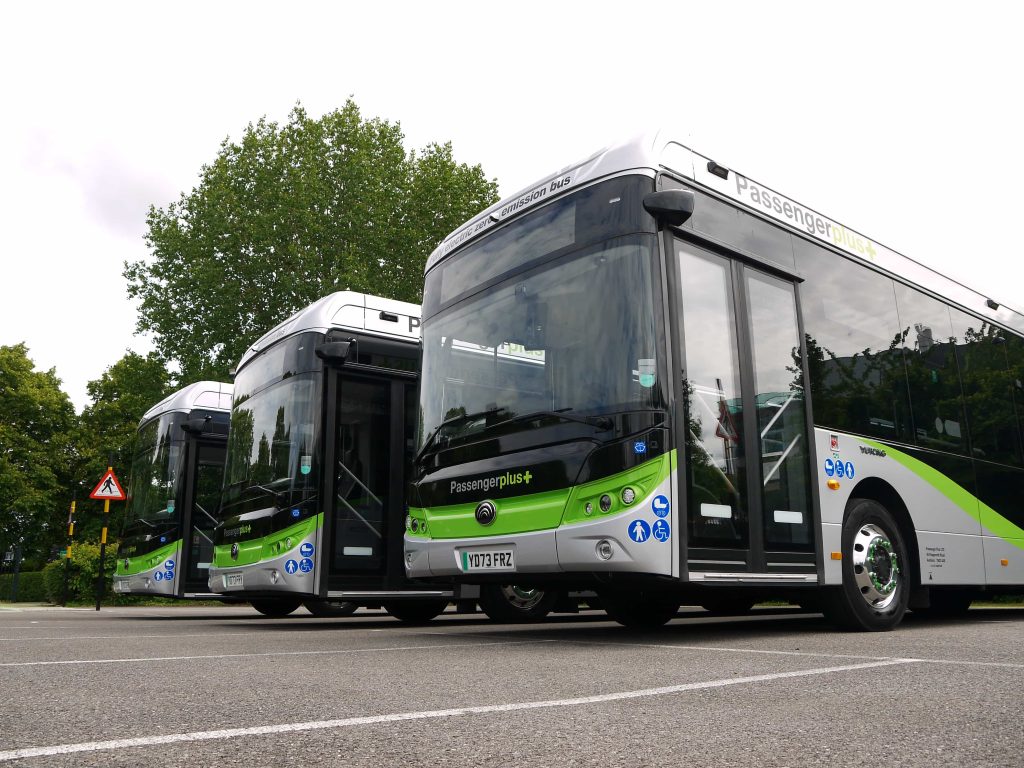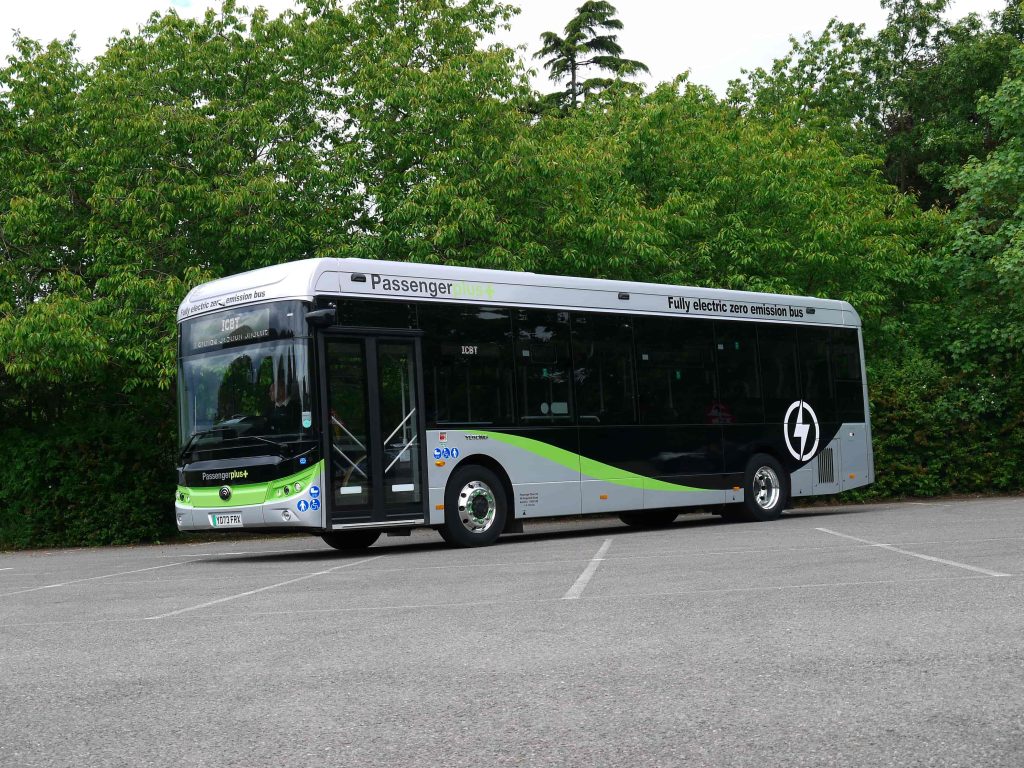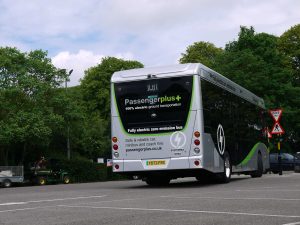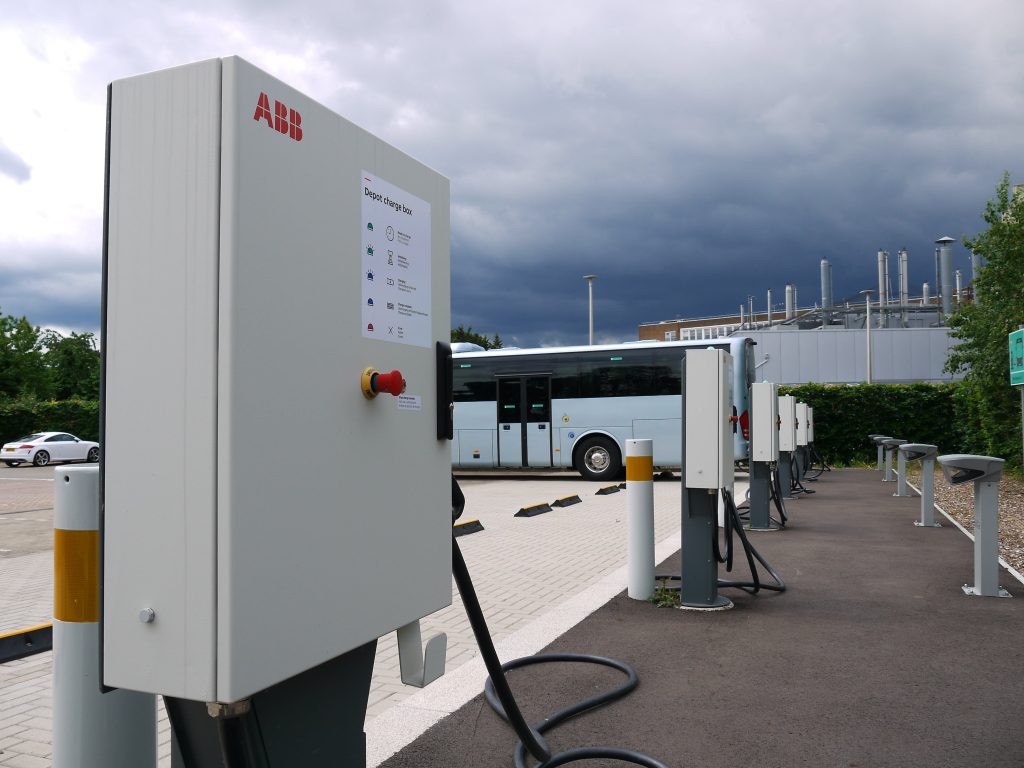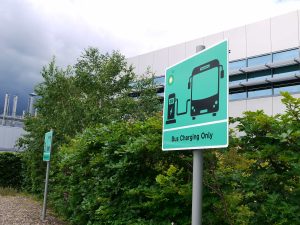Though transitioning a commercial bus fleet to electric requires little in the way of operational changes, contractually, it can necessitate a new way of thinking.
That’s the learning of Passenger Plus, which last year became a pioneer in operating electric buses on a commercial corporate contract.
Convincing corporate clients to pay a premium to switch over to electric vehicles (EVs) will not work every time; Passenger Plus Managing Director Mark Drury acknowledges that such a shift matters little to some, particularly when the higher outlay is considered. But after a visit to Yutong in China in 2016, seeing a demonstration of how EVs were stored and charged and being loaned an E10 demonstrator model, interest among his clients was piqued.
While the push for zero-emission buses in government-assisted fleets is driven by factors such as clean air and carbon reduction targets, such things don’t necessarily play into the conscience of multi-national companies operating staff shuttles. Cost reduction isn’t a selling point; though it may be half the price to run an electric bus in fuel terms, Mark warns that initial purchase cost can take up to a decade for an operator to break even. Then there are concerns that road pricing or additional taxation will further impact long-term costs. Instead, Mark recognises that EVs fit well with a 21st century brand image, and that cost often matters less than projecting the right message. Demonstrating that philosophy most keenly have been energy giant BP and multinational pharmaceutical company GSK.
Corporate shuttle work
It had not been in their consciousness before,” Mark explains, revealing that the physical manifestation of zero-emission bus travel was what it took for those companies to finally take interest. “Here, we had a demo. That made them realise we could do this. They finally woke up to it.”
All this should come as no surprise. Passenger Plus has been clear before about the type of clients it works for. “People buy from people like themselves,” is one of Mark’s favourite sayings. For clients like BP and GSK, which typically negotiate with multi-million-pound companies, image is everything. That was a founding principle of Passenger Plus when Mark and Kevin Hughes established the company in 2012.
The result is that Passenger Plus has been running four electric Yutong E10 buses on a corporate staff shuttle contract for BP for some seven months now. Vehicles travel between Feltham railway station and BP’s Sunbury office, where they are charged on site. They start their day at 0545hrs and finish at 2030hrs. Peak time sees a service every seven minutes, transporting BP staff to the company’s headquarters. Under the supervision of Fleet Maintenance Controller Lee Goodall, the buses are maintained by fellow operator City Circle on a repair and maintenance contract.
“I was expecting it would be quite hard to run,” Mark says. “That we’d have to make lots of changes to the way we operate. But that’s not been the case at all. These electrics are easier to operate than diesels. You unplug them, they go and do their business, you plug them back in. The only time they leave is for their six weekly inspections. Apart from that, they go to Feltham and back. We even wash them on site. It’s brilliant. Before you dive into EVs, you always have worries: What if they don’t charge, or we have a power cut? None of that has been a problem.”
Longer contract, safer investment
Running EVs has another clear advantage and means they have become preferable for Mark’s business. The higher outlay of an EV has necessitated longer contract length. To pay for it, the BP contract has been secured for eight years – concurrent with the warranty period of the vehicles. “That puts us in a position that a lot of people don’t have,” he adds. “Now that we can ask for a long-term contract, we are more than happy to invest in these vehicles in larger batches – four at a time, for example. Ultimately, that means we can make more money operating than with diesels. Most of our contracts are cost plus, so we are making a percentage of profit on a larger number.”
All this has given experience for Passenger Plus to now give EV quotes on most of the work it does. But despite Mark previously believing that the first corporate contract to use EVs would potentially “open the floodgates” the market remains limited. Passenger Plus clients typically seek a lower capacity, high frequency service, and finding a vehicle to fit that niche has proven tricky.
“Though most clients do want an electric option for quotes, the majority of stuff we run is still quite small vehicles, and that’s a difficult ask,” Mark says, noting that the company has six full-size coaches, while the rest is 35 seats or lower. The E10s, for instance, are configured at 32 seats, no standees. If it could get its hands on a battery-electric 16-seater at the right price, that could see the company’s electric operation expand significantly. “Ford make a vehicle, but that isn’t available right now. Mercedes-Benz recently released a model that only goes to 11 seats. One builder has an electric low-floor example at 16-seats, but due to it being a conversion, is prohibitively expensive. That’s a massive frustration. If we could get hold of some battery-electric 16-seaters, we’d probably have a fleet of them by now.”
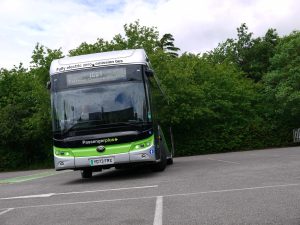
If the approach to buying electric vehicles is established, what about at the end of the contract? Mark has stated in the past that finance payments are preferable to maintenance payments, therefore the vehicles will be sold at the end of their eight-year contract. An unknown second-hand value means the entire cost of the vehicles has been factored into the contract.
Mark responds tenuously to whether he is confident about being able to sell those vehicles after eight years. “Therein lies the problem,” he says. “That was one of the issues with financing them. Every finance company wants to finance clean technology. Bearing in mind we started talking about this a year after COVID-19, when the vehicle market became so unstable, we’re lucky in that we have a strong balance sheet, and brilliant customers like BP where 80% of our work is contracted.”
Transitionary period
While Passenger Plus will not speculatively buy EVs, its experience now means it would be comfortable proposing EVs for any kind of contract. Ease of integration, lower running costs and maintenance, and the ability to negotiate longer contracts could mean Passenger Plus pursues the EV route more with its clients.
“We are always trying to encourage people to try the EV route. Because why wouldn’t you?” says Mark. “Especially with the sort of people that we work for. They have most likely got some remit. One company that we work for has senior management in the USA that have already said decisions should not be made on price if it means the company can reduce its carbon footprint. Again, that company needs a vehicle in the 16-29 seat segment. As soon as a product becomes available, it will bite my arm off.”
It speaks to this being a transitionary period. The latest endeavour in EV operation for Passenger Plus is the Yutong TCe12. The operator trialled a demonstrator model for two weeks in May. Two years ago, it floated the concept of an electric coach to Schroder Investment Management in Horsham. That vehicle “ticks every box” according to Mark. By the end of this year, he is confident that a TCe12 will be used to replace a 35-seat TC9 being used on a staff shuttle.
External pressure driving ZE?
Where pressure to decarbonise within this sector comes from is a curious topic. It’s a conversation Mark says happens constantly. “Some clients are more keen than others. Some don’t show any interest. The hard sell is that it will cost more money. But every year the conversation gets easier. These large companies, and Schroders is a case-in-point, have investors. Their customers are interested in investing money towards green energy. There is pressure to do the right thing.”
The green angle of EVs seems, Mark reflects, to become important to some companies very quickly. When lights are switched off, waste is recycled and the paper is cut down, EVs are the next easy win. External influence, whether by planners, the environment or investors, is what nudges them over the line. There is still reluctance, because EVs are a relatively unknown quantity compared to diesel, but that is managed by having transparent discussions. “Show them the experience,” Mark says. “That’s how you secure an eight-year contract instead of a five-year contract. That investment needs to be worthwhile.”
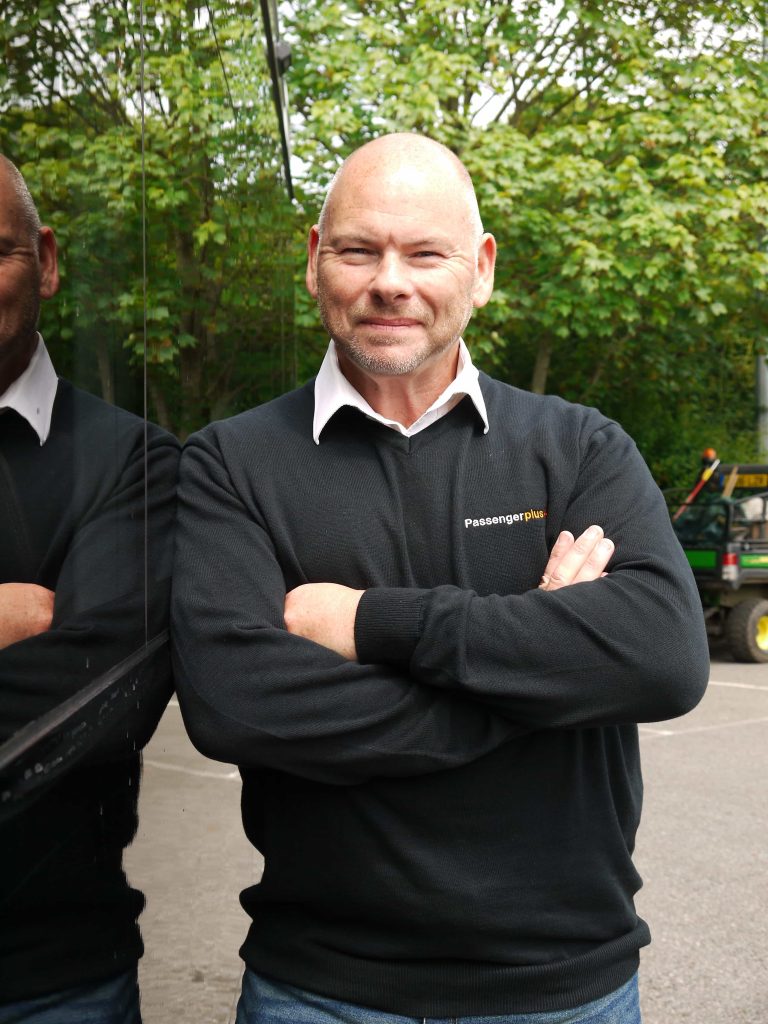
It will never be as simple as buying diesel. Conversations will be necessary with insurers and finance companies. Risk assessments will be written. Mark says Passenger Plus got some things right originally, but there was a lot to learn in six months. Infrastructure will be the concern moving forward. It makes no sense charging vehicles at a depot only to drive them 60 miles before they start a contract. Schroders will, if the contract is successful, charge the vehicle on site, where it has established its own solar energy farm. Passenger Plus has stated it will pay to put charging infrastructure into any client’s site. Pinewood Studios, another corporate client, will likely go all-electric in future, and will have charging on site.
So far, Passenger Plus has made a success of its endeavour. The breadth of its achievement was made clear to Mark when someone pointed out how high the risks of running EVs on a commercial basis seemed to be. “I didn’t think so,” he counters. “I think it’s a sensible thing, to get a long-term contract. We’re making money, so why wouldn’t we? 12 years is a long time in some respects. To get to where we are now, where we’ve funded everything out of our own money, with no investment from anyone else, is something to be proud of.”




















